Abstract
Does it signify morally whether a deception is achieved by a lie or some other way? David Bakhurst has challenged my view that it can signify. Here I counter his criticisms--firstly, by clarifying the terminology: What counts as a lie? Secondly, by exploring further what makes lying wrong. Bakhurst maintains that lying is wrong in that it infringes autonomy--and other deceiving stratagems, he says, do so equally. I maintain that lying is wrong in that it endangers trust--and other types of deceiving stratagems do not do so equally. Lying to patients, I contend, is an abuse of their trust. Other forms of their intentional deception need not be so, although, in our autonomy-minded culture, they are likely to be so.
Full text
PDF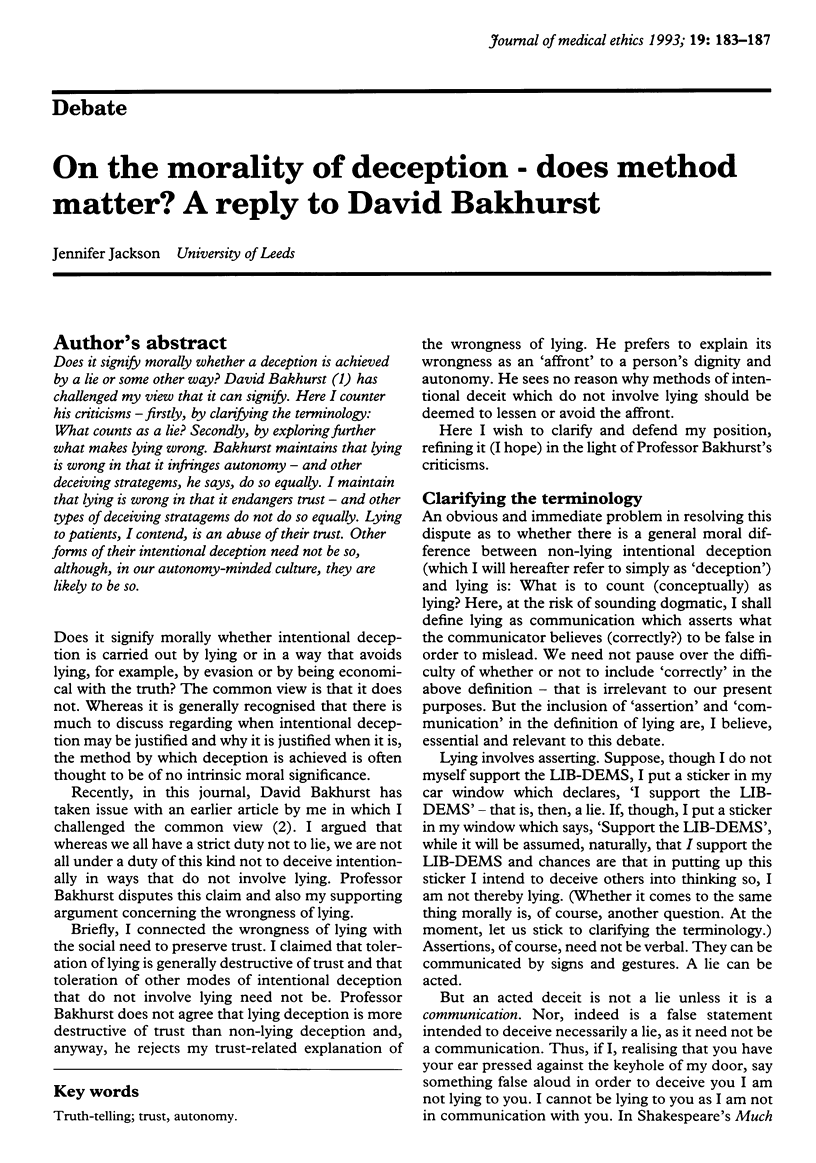
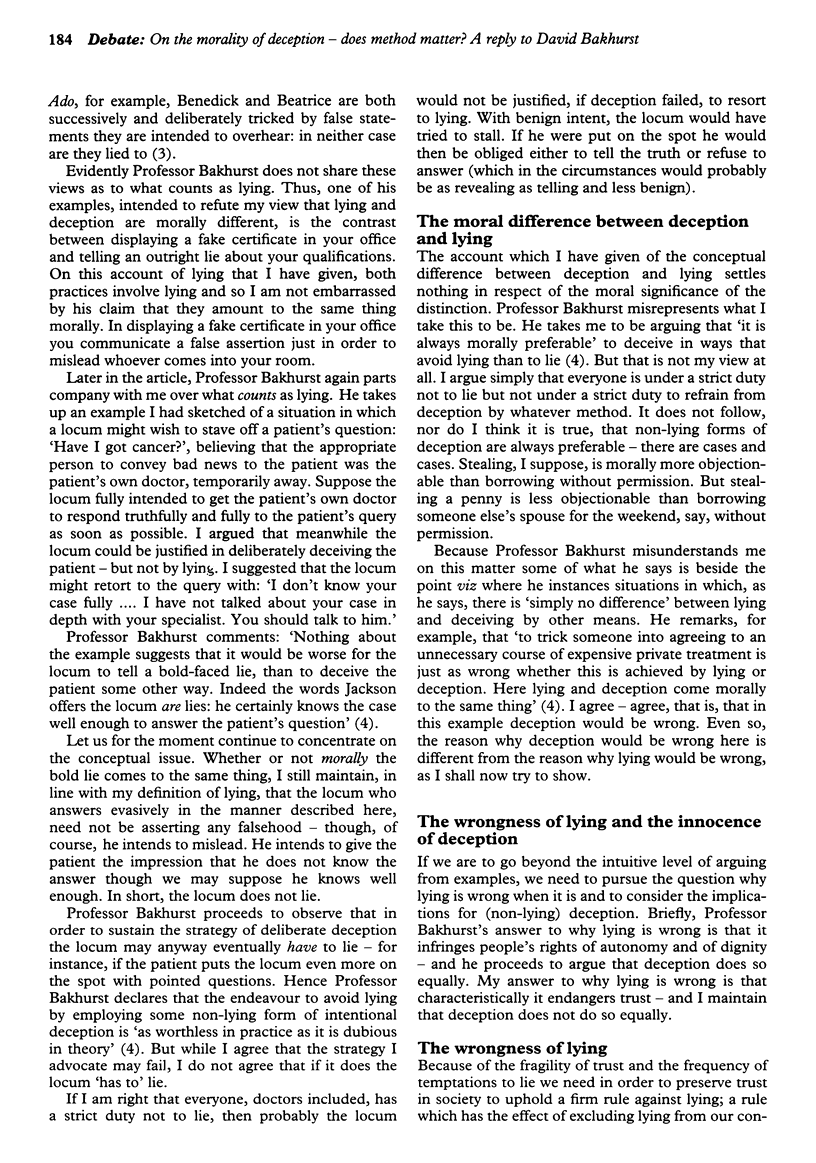
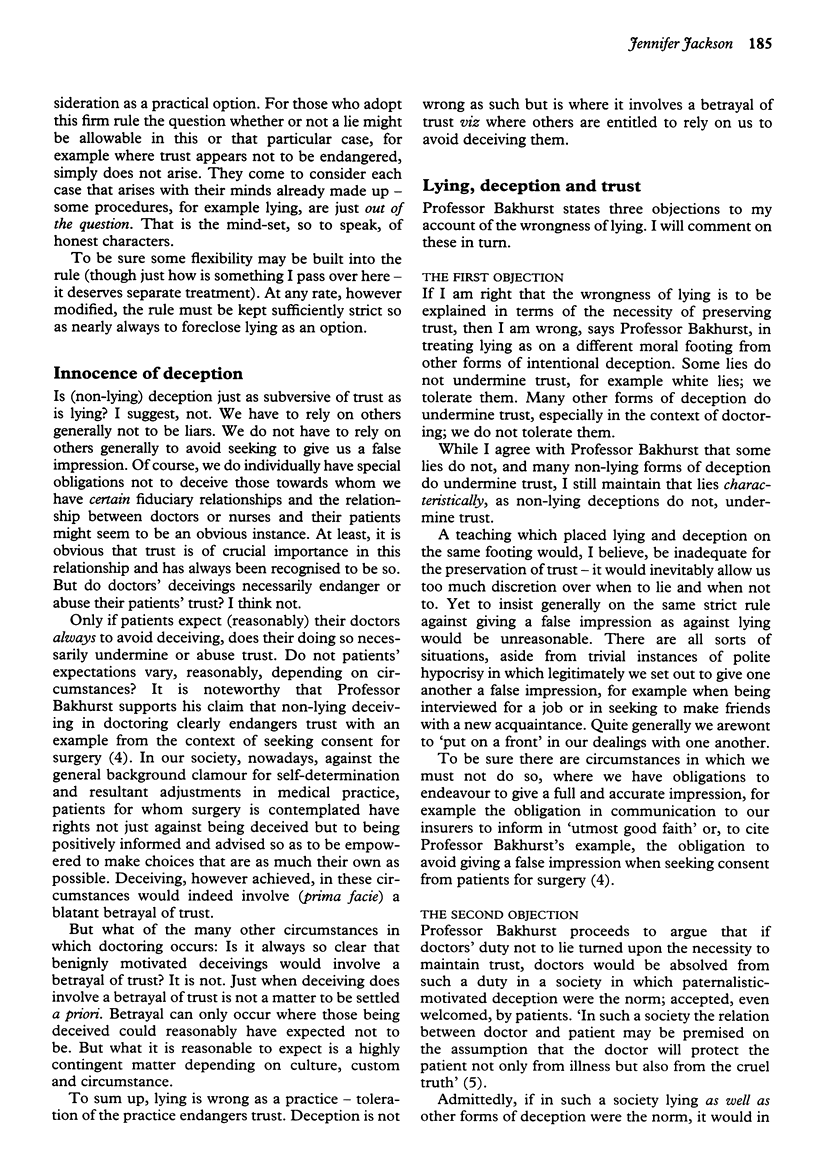
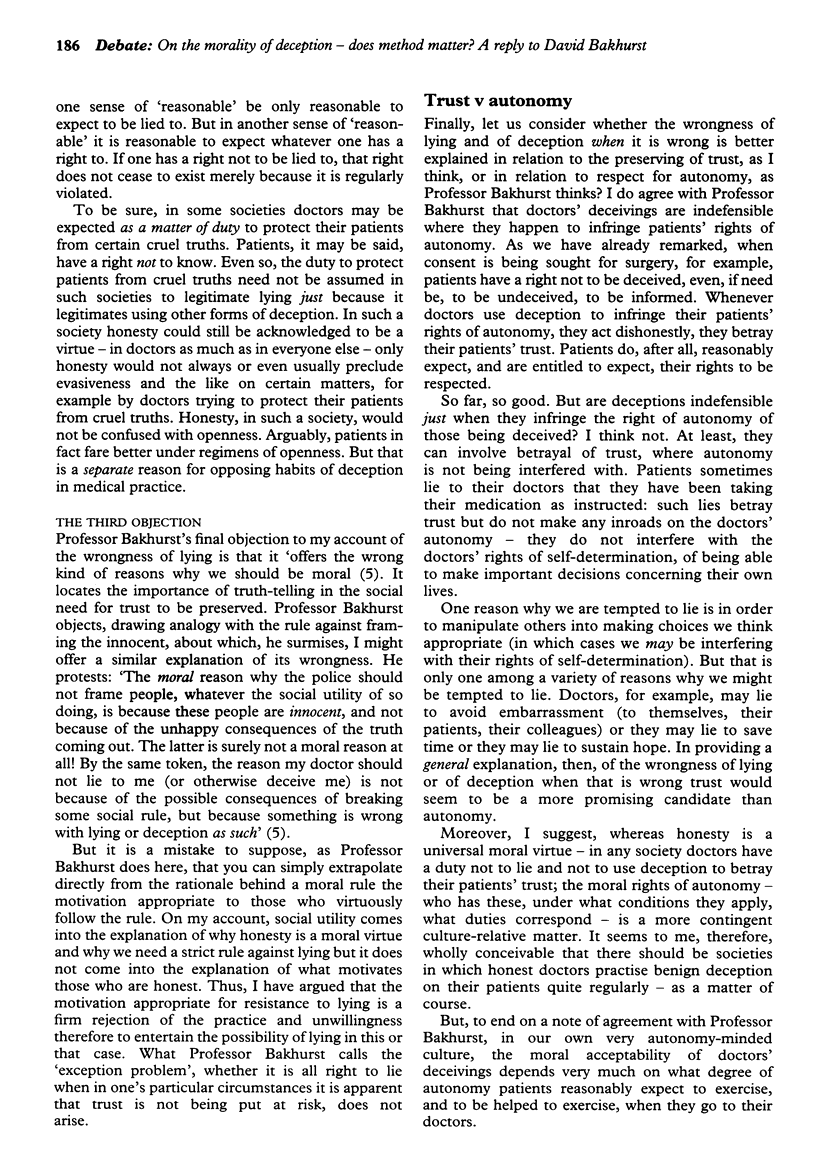
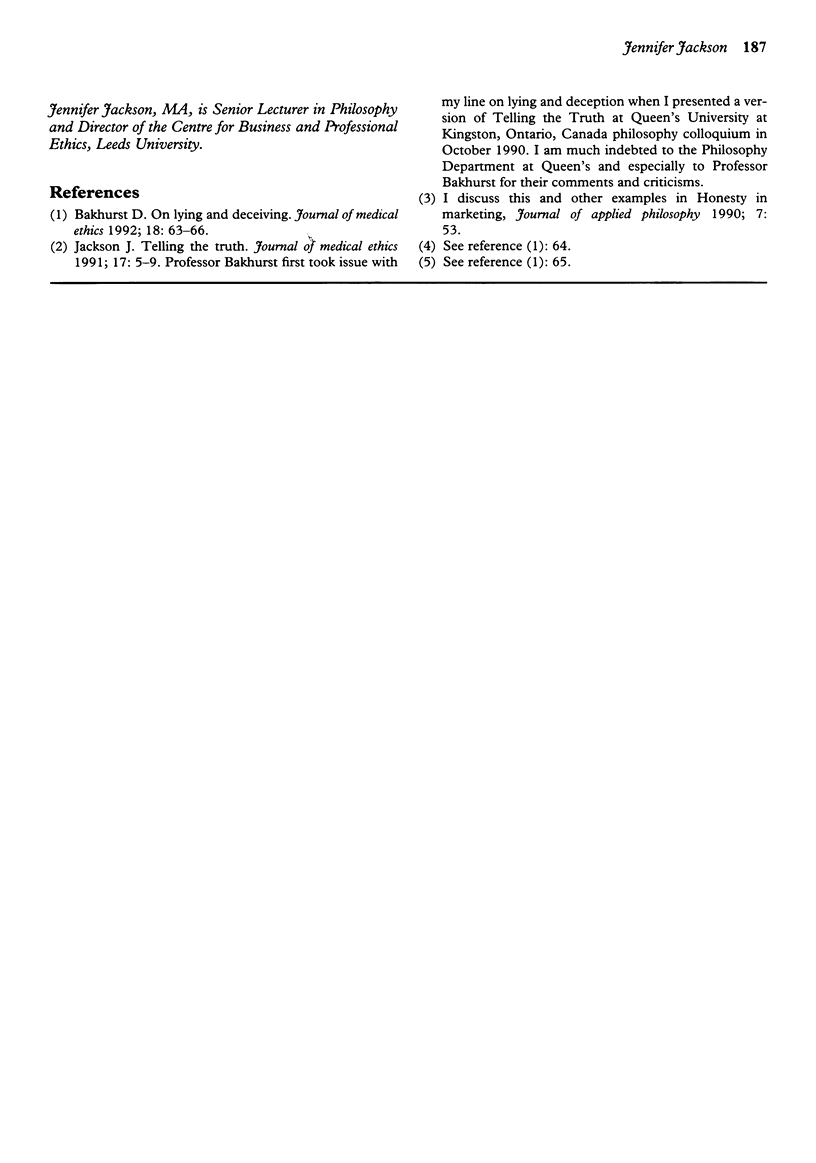
Selected References
These references are in PubMed. This may not be the complete list of references from this article.
- Bakhurst D. On lying and deceiving. J Med Ethics. 1992 Jun;18(2):63–66. doi: 10.1136/jme.18.2.63. [DOI] [PMC free article] [PubMed] [Google Scholar]



